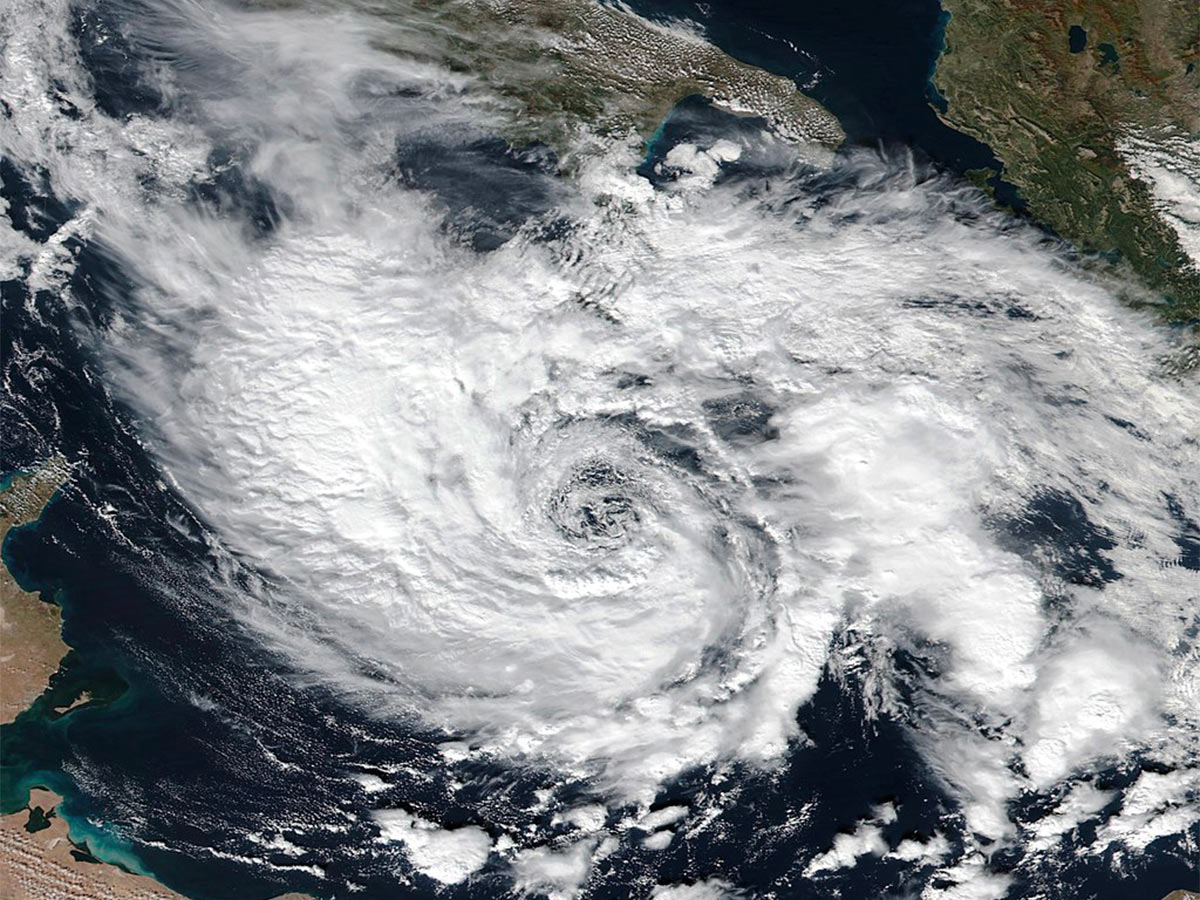
Medicane: new study on cyclones threatening the Mediterranean
Less frequent, but always more intense. Medicane, Mediterranean cyclones that resemble tropical cyclones, are attracting the attention of the scientific community, policy makers and public opinion because of their increasing impact on our society. A study conducted by researchers at the National Institute of Oceanography and Applied Geophysics - OGS and published in Scientific Reports, a journal of Nature Publishing Group, analysed for the first time the behaviour and evolution of the Apollo Medicane and showed how much the marine conditions pre-existing systems have guided the physical and biogeochemical response of the ocean to the passage of extreme weather events.
Recent simulations have predicted a frequency of medicanes in the future, but also an increase in their intensity and duration in the Mediterranean, which on a global scale is one of the areas where cyclogenic activity is most common. In October 2021, the Strait of Sicily and the coasts of eastern Sicily were involved in the passage of the Apollo medicane, an event characterised by intense rainfall and huge coastal floods that caused seven victims and numerous damages in Sicily and Calabria.
The strong disturbance crossed an area of the Ionian Sea characterised by the presence of a cyclonic ocean vortex. This made it possible for the first time to describe the effects of an atmospheric cyclone on a marine cyclone in the Mediterranean Sea by monitoring the Ionian Sea with autonomous oceanographic instruments (drifters and floats), analysing these data together with satellite data and available mathematical models, and discovering physical and biogeochemical responses of the sea that were different from those of previous medican.
